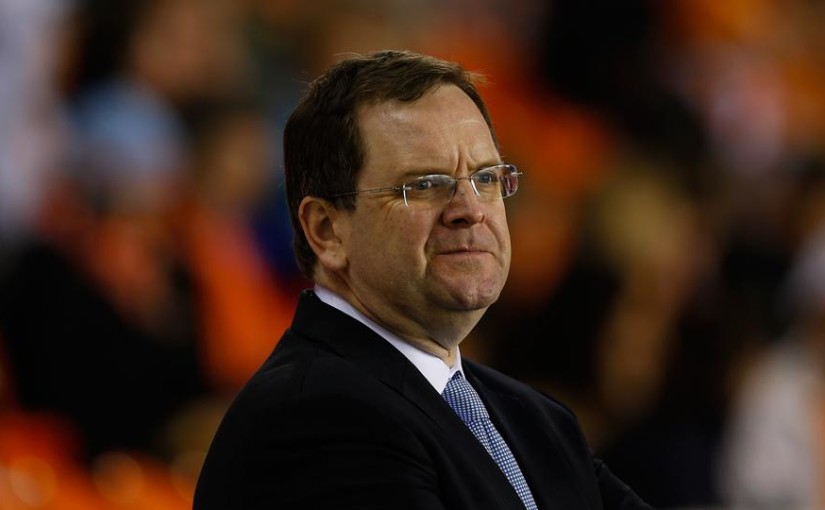By Ben Nicholson
July 28 – The MLS has formed a partnership with Southern New Hampshire University (SNHU), making the school its exclusive education partner.
The MLS will have access to 125 full scholarships per year through 2018, reserved for league staff and developmental, current and former players in exchange for SNHU students receiving four internships at MLS’ headquarters in New York, six internships across three MLS teams and an undetermined amount of online scholarships.
This is perhaps an indication of US. soccer shifting away from the nation’s traditional sporting model in an attempt to catch up with the global counterparts.
Currently, the normal pathway for athletes in the US to enter into the professional ranks is via the National Collegiate Athletic Association (NCAA). Universities court talented high school students, waving around large scholarships (offers to cover tuition fees, which can approach and exceed $50,000 per year), access to world-class facilities and promises of an accredited higher-education degree. These ‘student-athletes’ are then herded into the professional leagues, at some point in the next five years, via the draft system.
What the MLS now appears to be suggesting is a move towards is a system where it provides the football education at its clubs and the academic education through SNHU.
This NCAA system has operated successfully in US major league sports like basketball, baseball and American football. However, the nation has not seen the same success in respect to soccer.
There are multiple reasons for this, like restrictive rules on how many the ‘student-athletes’ may practice in the winter and a restriction on how many games a team can play each semester.
Perhaps most detrimentally, though, is that cornering the talent within the university system, and prohibiting the student-athletes from playing outside of the university during that time, means that young players do not get the experience of playing with senior professionals.
In other parts of the world where clubs have youth academies, they can blood their young with senior reserve team appearances, or merely training sessions with the first team. The young talent in the US is largely restricted to playing within a certain age group.
The academic degree, and social privilege of being a ‘student athlete’, makes the university route satisfactorily alluring. However, with education made alternatively available through the MLS, the league could start to begin a process where teams can lure young prospects away from the clutches of the NCAA.
It is speculative to say this is a goal of the MLS but it could logically follow that the MLS would adopt some select European principles in order to enhance the quality of the league.
The rhetoric of US National Team Manager and Technical Director of US Soccer Jurgen Klinsman’s, whose son is actually playing in the NCAA system as a student athlete at the University of California, has been critical of this developmental model and structure, even to the extent of looking outside of the US for non-home-grown players that could be eligible to play for the national team.
Mark Abbott (pictured), president and deputy commissioner of the MLS, intimated that the NCAA failures were on the minds of the league when they decided to make the deal, saying: “What we wanted to be able to do was find a way that young players who have chosen to pursue a professional career after high school can still find a way to get a high-quality education. I think it’s tremendously innovative, and it’s just great for these young players.
“Now if you choose to pursue your professional career, it’s not necessarily at the expense of your college education. We really do believe that if players are able to develop all aspects of themselves, physically but also mentally by pursuing their education, we think they will be better all-around players. And that which is good for the players is ultimately good for the league.”
SNHU is a private, non-profit university that operates largely online. Roughly 55,000 students are enrolled at the school, only 3,000 of whom reside on its main campus in Manchester, New Hampshire. Students across the nation can choose from the 200 undergraduate and graduate degree and certificate programs that SNHU offers.
Contact the writer of this story at moc.l1745038910labto1745038910ofdlr1745038910owedi1745038910sni@n1745038910osloh1745038910cin.n1745038910eb1745038910

